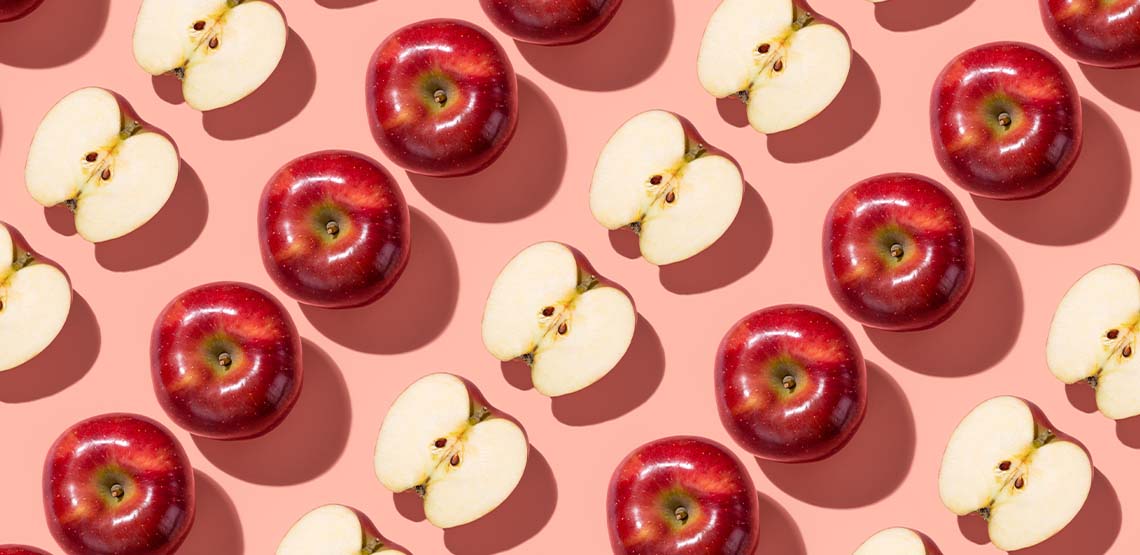Prebiotics vs. Probiotics
Probiotics are helpful for a healthy digestive system, but do you know how they differ from prebiotics? It's possible to get both from a balanced diet, but you can also take supplements to complement your diet as well.
Viome, for example, sells prebiotic and probiotic supplements, and offers at-home gut testing to help monitor your digestive health. PatchMD is another company that offers supplements and vitamin patches, for everything from digestive health to sleep, brain supplements, heart health and more.
Keep reading for more information on prebiotics vs. probiotics, and how you can incorporate them into your daily routine.
Foods Containing Probiotics and Prebiotics
Prebiotics and probiotics are added to some foods, and they are also available as dietary supplements. As with all supplements, it is best to talk with your doctor to make sure it is right for you.
If you do want to get more prebiotics into your diet, there are many different types of food that you can eat. When you think of prebiotics, think of fiber-rich foods. Some good sources of prebiotic foods include the following:
- Apples.
- Beans.
- Oats.
- Onions.
- Bananas.
- Legumes.
- Nuts.
Probiotics are a little tricky to add to your diet since most foods containing them are fermented and not part of everyone’s diet. Some sources of probiotics include:
- Tempeh, which is a fermented soybean product.
- Kimchi, which is a fermented, spicy side dish made with cabbage.
- Miso, which is a Japanese seasoning.
- Kombucha, which is a fermented green tea.
What Are Probiotics?
Probiotics are live microorganisms, such as bacteria and yeast that naturally live in the body. When we think of bacteria, we may think that it is all harmful, but some types of bacteria are good for your health.
Probiotics are good microorganisms that are thought to have several health benefits. They are mostly found in fermented foods, such as sauerkraut, yogurt and pickles. They are also available in supplement form.
Although studies are ongoing, it is thought that probiotics may help fight off viruses and bad bacteria. A healthy gut may also play a role in disease prevention and keeping the immune system strong.
Related Search Topics (Ads)
What Are Prebiotics?
Prebiotics are in certain types of plant fiber that the body cannot digest. Because they are not digestible, they move through the digestive system and become food for other microbes and bacteria. They help stimulate the growth of healthy bacteria in the gut and provide support or food for probiotics.
In addition to supporting other microbes, prebiotics may also provide additional health benefits of their own. For example, researchers think that prebiotics may help promote healthy bowel function, increase calcium absorption and improve gut wall health.
What Are the Health Benefits of Probiotics vs. Prebiotics?
While both probiotics and prebiotics may help promote a healthy gut and have benefits for overall good health, they are different. An easy way to remember it is probiotics are microorganisms that are thought to have health benefits. Prebiotics are foods that stimulate the activity or growth of healthy bacteria (probiotics).
Simply put, prebiotics helps support the activity of probiotics. In a way, prebiotics helps probiotics thrive.
Probiotics and prebiotics appear to have positive effects on the body. According to Harvard Medical School, probiotics may play a role in treating or preventing various conditions, such as:
- Irritable bowel syndrome.
- Ulcerative colitis.
- Diarrhea.
- Certain infections of the digestive tract.
Probiotics may also help maintain a healthy balance of good bacteria in specific situations. For example, taking antibiotics can kill good bacteria in the gut and lead to diarrhea. A study published in Cochrane found that taking probiotics when using antibiotics decreases a person’s risk of developing diarrhea by about 60%.
When Should You Consume Prebiotics Over Probiotics?
There is less research on prebiotics vs. probiotics. There is a lack of studies on who needs to consume prebiotics, but what we do know is that prebiotics may help healthy microbes grow. It makes sense that if you are at risk of developing gastrointestinal issues or have certain intestinal conditions, it may be useful to consume foods containing prebiotics. Consuming prebiotics may help improve the function of probiotics, which may help promote intestinal health.
It is helpful to understand that not everyone needs a probiotic supplement. The Academy of Nutrition and Dietetics’ position on supplements, including probiotics, states that micronutrient supplements are needed when requirements are not met through diet. For example, if you have a condition that causes malabsorption or a chronic disease that prevents you from getting the proper amount of nutrients, a supplement may be helpful. Foods Containing Probiotics and Prebiotics
Prebiotics and probiotics are added to some foods, and they are also available as a dietary supplements. As with all supplements, it is best to talk with your doctor to make sure it is right for you.
If you do want to get more prebiotics into your diet, there are many different types of food that you can eat. When you think of prebiotics, think of fiber-rich foods. Some good sources of prebiotic foods include the following:
- Apples.
- Beans.
- Oats.
- Onions.
- Bananas.
- Legumes.
- Nuts.
Probiotics are a little tricky to add to your diet since most foods containing them are fermented and not part of everyone’s diet. Some sources of probiotics include:
- Tempeh, which is a fermented soybean product.
- Kimchi, which is a fermented, spicy side dish made with cabbage.
- Miso, which is a Japanese seasoning.
- Kombucha, which is a fermented green tea.
Collagen Supplements for Gut Health
- NativePath: NativePath is a health and wellness company that offers a range of products designed to improve the overall health and appearance of the body, including helping with gut health.
- NeoCell: NeoCell's supplement contains a variety of natural ingredients that work together to improve the health of the gut.
- Codeage: Codeage's supplement contains a blend of natural ingredients that work together to support healthy skin and improve gut health. These ingredients include collagen, hyaluronic acid and various vitamins and minerals.
- BetterBody: BetterBody offers collagen supplements that are designed to help support gut health. These supplements contain a high-quality blend of collagen peptides, vitamins and minerals that work together to promote your overall gut health.
- SkinnyFit: SkinnyFit offers collagen supplements that are designed to promote a healthier gut. These supplements contain a blend of hydrolyzed collagen peptides, amino acids, vitamins, and minerals that work together to support overall health and wellness. Additionally, SkinnyFit's collagen supplements come in a variety of flavors and are easy to mix into beverages or food.
More and more research studies indicate that our gut health may play an important role in our overall well-being. Keeping the right balance of good bacteria in our gut may be one way to promote a healthy body.


